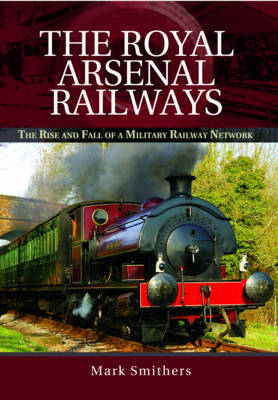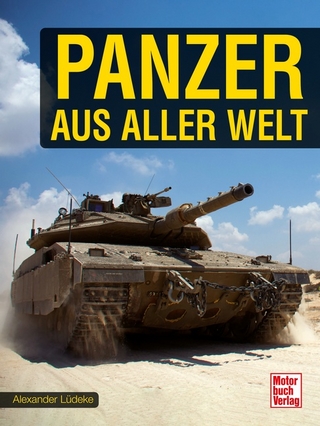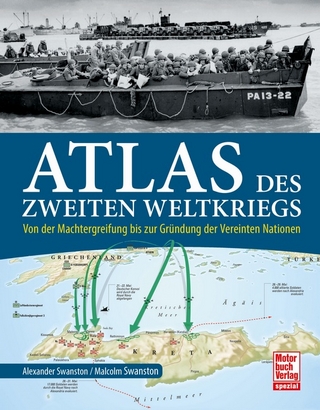
Royal Arsenal Railways
Seiten
2016
Pen & Sword Books Ltd (Verlag)
978-1-4738-4400-1 (ISBN)
Pen & Sword Books Ltd (Verlag)
978-1-4738-4400-1 (ISBN)
- Keine Verlagsinformationen verfügbar
- Artikel merken
The first in-depth history of this railway network to be published.
Mark Smithers has written a number of definitive books and magazine features on the history of locomotive construction and the development of narrow gauge railways. This book looks at the history and development of railways at the Royal Arsenal Woolwich, which evolved from humble roots in the 1820s into three separate railway systems, serving the Gun Factory, Laboratory and Carriage Department. The three systems originally had their own fleet of locomotives and rolling stock and were constructed using three different track gauges: standard gauge, 2ft and 18 inches. The three separate factories and their railways were amalgamated to form one organization on 1 January 1891, when the Royal Arsenal Railways became an official entity. The Arsenal and its railways played a major role in both world wars and continued to hold an important place in gun and propellant manufacture until the late 1950s, when the complex was gradually run down. The Royal Arsenal and its railways were finally closed in 1967, when the last train of material left the site.This book covers the history of the system from its beginnings through to its demise and also details the significant remains of a once mighty network.
Mark Smithers has written a number of definitive books and magazine features on the history of locomotive construction and the development of narrow gauge railways. This book looks at the history and development of railways at the Royal Arsenal Woolwich, which evolved from humble roots in the 1820s into three separate railway systems, serving the Gun Factory, Laboratory and Carriage Department. The three systems originally had their own fleet of locomotives and rolling stock and were constructed using three different track gauges: standard gauge, 2ft and 18 inches. The three separate factories and their railways were amalgamated to form one organization on 1 January 1891, when the Royal Arsenal Railways became an official entity. The Arsenal and its railways played a major role in both world wars and continued to hold an important place in gun and propellant manufacture until the late 1950s, when the complex was gradually run down. The Royal Arsenal and its railways were finally closed in 1967, when the last train of material left the site.This book covers the history of the system from its beginnings through to its demise and also details the significant remains of a once mighty network.
Mark Smithers has had a virtual lifelong interest in the history of industrial and narrow gauge railways. In addition to being the author of two previous books on the subject, he has been a contributor to most of the major specialist railway journals over a period spanning three decades. He has also been involved in historical research used in the construction of replica narrow gauge steam locomotives, both in full-size and large-scale model form.
| Erscheint lt. Verlag | 1.6.2016 |
|---|---|
| Zusatzinfo | 10 colour illustrations & 190 black and white illustrations |
| Verlagsort | Barnsley |
| Sprache | englisch |
| Maße | 216 x 282 mm |
| Themenwelt | Natur / Technik ► Fahrzeuge / Flugzeuge / Schiffe ► Militärfahrzeuge / -flugzeuge / -schiffe |
| Natur / Technik ► Fahrzeuge / Flugzeuge / Schiffe ► Schienenfahrzeuge | |
| ISBN-10 | 1-4738-4400-2 / 1473844002 |
| ISBN-13 | 978-1-4738-4400-1 / 9781473844001 |
| Zustand | Neuware |
| Haben Sie eine Frage zum Produkt? |
Mehr entdecken
aus dem Bereich
aus dem Bereich
von der Machtergreifung bis zur Gründung der Vereinten Nationen
Buch | Softcover (2023)
Motorbuch Verlag
24,90 €


